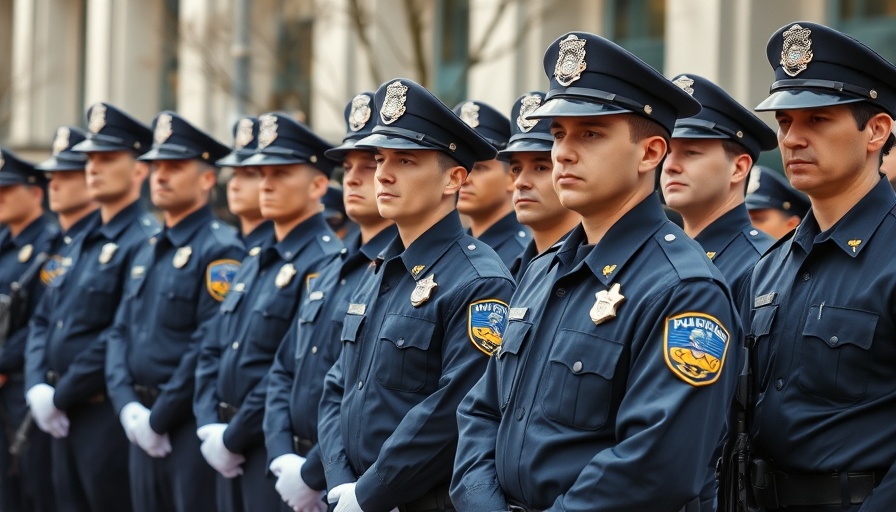
Understanding Police Neutrality in Politics
The ongoing debate surrounding police officers' involvement in political activities has ignited considerable discussion in Saint Lucia and the greater Caribbean community. Social media has become a battleground for claims against the Royal Saint Lucia Police Force (RSLPF), alleging that officers have crossed the fine line from public service into the partisan realm. The distinction is crucial—while critiquing government policies is within the officers’ rights, aligning themselves with political parties is not.
The Legal Framework and Its Implications
Politically charged discussions often overlook the critical legal framework governing police neutrality. According to the Public Service Staff Orders, police officers are barred from engaging in political activities unless they resign. This prohibition includes anything from participating in political discussions to publishing political articles, ensuring that law enforcement remains impartial. The intention behind these rules is clear: to maintain public trust in an institution that must serve all citizens equitably, regardless of their political affiliations.
What Happens When the Lines Blur?
The controversy raises significant questions about law enforcement's role in a democracy. When police officers engage in politics, they risk undermining public confidence in their neutrality. Many argue that the laws restricting their participation are necessary to preserve the integrity of the police force. Yet, there are advocates for reform who argue that these prohibitions might stifle necessary critiques of governance by public servants who, after all, are citizens too. How can they critique the government if they fear repercussions?
Future Directions: A Balancing Act
The challenges posed by these laws highlight a need for a balanced approach. Policymakers must consider if the current regulations adequately serve the public interest or if adjustments are needed to facilitate responsible discourse. Balancing police neutrality with the fundamental right to critique governance is fundamental for fostering a healthy democratic environment. As the political landscape continues to evolve, discussions should address how to empower officers to contribute to democracy without compromising the integrity of their roles.
Engaging in this discourse is vital—only by understanding the complexities of police involvement in politics can we ensure a fair and just society. It's time for all stakeholders, from lawmakers to citizens, to participate in this dialogue and advocate for balanced reforms that respect both democracy and the rule of law.
 Add Row
Add Row  Add
Add 




 Add Row
Add Row  Add
Add 


Write A Comment